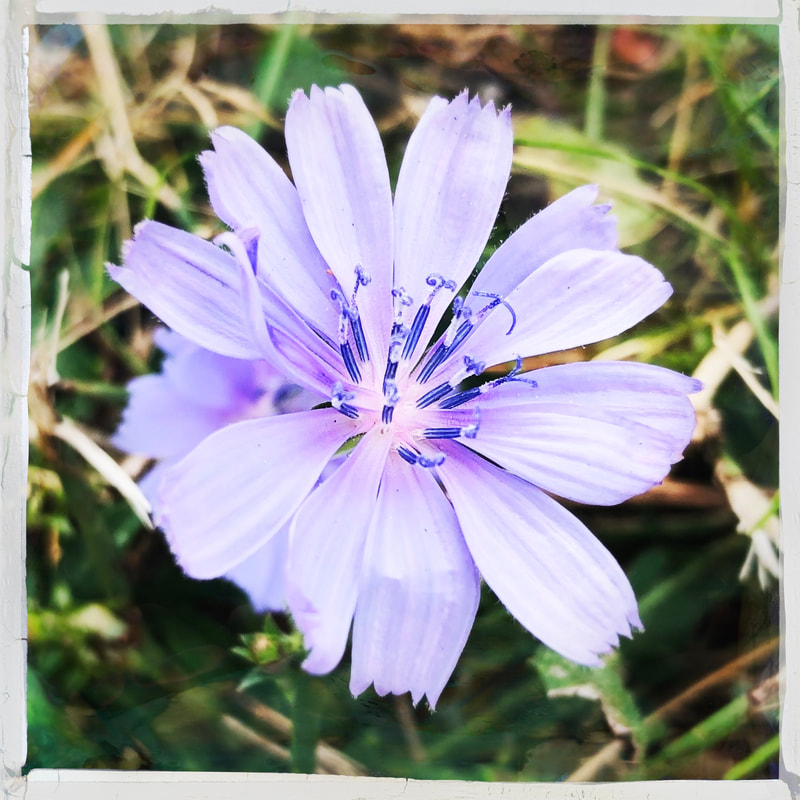ASSAY: A JOURNAL OF NONFICTION STUDIES
10.1
10.1
|
What was it that made me run? I was always running.
*
Or, at the skating rink, I was the rusher. The sound of my blades whooshing behind me on the straight stretches, hatching the crossovers on the curves. When I leapt and crashed my body was velocity, a welter of legs and ass sliding with hockey puck zip.
*
I wrote before I read. Fast. Then I read and I could not read fast enough. I read, at first, for the facts: Ultimately science derives from the legacy of Greek philosophy… No more in Mendel’s case than in Darwin’s, however, did science have to do with a lucky strike… At the age of thirteen, Faraday was apprenticed to a bookseller. Up and down a South Carolina beach I went, Charles Coulston Gillispie’s The Edge of Objectivity prised open in my hands, the sun beating down, the sand blowing in, the seabirds squawking overhead, the facts like a hunger I couldn’t assuage, for what I didn’t know was everything and what I could know was here, in this book, and there, in the next, and in all the books after that, which I could not read fast enough, and which later I hardly remembered, for having read them all so fast. The facts obliterating the facts.
*
Also, in the back of the class at Radnor High, a room of width and parallels, I sat at my assigned machine typing faster than the rest, queen of the pangram. The quick brown fox jumps over the lazy dog. What do you do with a sentence like that? What do you do when it multiplies? There were foxes everywhere on my onion skins. And then there were piles of foxes.
*
I couldn’t read Shakespeare because I couldn’t take Shakespeare fast. Friends, Romans, countrymen, lend me your ears. Hemingway was easy, but Fitzgerald was finer; I read Fitzgerald fast. Mary Oliver. Joan Didion. Marilynne Robinson. For every book in my hand there were ten by the bed, and, feeling the pressure of the unread, that huffy and impatient glance, I read books I loved far, far too fast.
*
So that later I only remembered how I’d felt in the amber cone of the behatted lamp. Stories as riptide, as gale, as peregrine strike. Claw marks. Blood.
*
I speed-walked danger zones for the poetics of adrenaline. Everything, always, was fast.
*
I learned to teach so that I would learn to read speedless. Taking a pen in one hand and jamming the margins, bracketing the recondite words, underscoring the passages I’d later cite. I’d clot the end papers with my criss-cross notes—blue ink verticals, black ink horizontals—then transfer the mess of my thoughts to a computer file where there were no pangrams, just order—the blinking twelve-point type of intimations slowed down, paused, interrupted by intention.
*
Reading slow was a conversion of words into music, of sound into sense, of structure into the conversation the author might have had, were I sitting there with her, and asking how? Reading slow was not hearing my own breath until I turned the last page and someone exhaled and I realized it was my body in the room. Reading slow was an exertion, an assertion. It was mind over mind, imagination over suggestion, hypothesis over theorem. Maybe the author meant this. Maybe the author meant that. Maybe the author didn’t know, but I did.
*
Reading slow was metabolic.
*
There are two ants on the arsenic-free display glass of my MacBook Air. They have appeared from nowhere and are scrambling. Brisk. Zig following zag. The history of my promptitude casting shadows.
*
Because when I wasn’t reading to teach, I was relapsing, reading fast. Buying more books to stack among the oeuvre of books I had already read too fast. Mary Gordon. Virginia Woolf. Marc Hamer. I couldn’t get enough, I couldn’t get them too fast. My husband would appear in the room where I was reading and catch me out of breath. I was ashamed of my speed and still reading fast.
*
My husband, with whom I’d fallen into love, so fast.
*
“We never return to the same book or even to the same page, because in the varying light we change and the book changes, and our memories grow bright and dim and bright again, and we never know exactly what it is we learn and forget, and what it is we remember.” — Alberto Manguel, A History of Reading
*
I take my copy of Michael Ondaatje’s memoir Running in the Family from my shelf and balance its slight weight in my hand. The book’s pages are stained with my thumbprints. Its margins are marked with my notes. Still, it is time, I think—I will make the time—to approach this text like prayer. Half a page—and the morning is already ancient--the last line on the first page. The lush evocative power of Ondaatje’s phrasing. The incantatory prose.
Reading, I remember the soft sounds, but a mere fraction of the words. Turning the page, I remember the bright bone of a dream and the word Asia as a gasp from a dying mouth. I remember the old governor’s home in Jaffna where the author had gone to listen to the minotaur of his Aunt Phyllis, as she plucked notorious incidents from her brain. I remember the journey Ondaatje had taken home to wonder through the tale of his parents and his birthplace, Ceylon, and I remember his grandmother dying in the blue arms of a jacaranda tree. I remember, too, the state of mind this memoir consistently puts me in (just this side of active consciousness), but turning these pages so slow, so very slow, I encounter what feels like strangers. Here: the art of betting on crows. There: the Sinhalese alphabet. Now, later: the fifty-five species of poisons. Were these always present, in this text? Had I read straight over them? I read until I reach the end. I stop and steep and pause. I receive, in this slow time, the deeper gift of the writer’s words. Running in the Family is not whole, Ondaatje tells his readers. And yet we, his readers, are wholly transported, wholly in. An impossible truthful contradiction that hits me full force, in the unhurried hour of my reading. Here is what I mean—Ondaatje addressing his long-gone father in the final pages: “You must get this book right,” my brother tells me, “You can only write it once.” But the book again is incomplete. In the end all your children move among the scattered acts and memories with no more clues. Not that we ever thought we would be able to fully understand you. Love is often enough, towards your stadium of small things. Your stadium of small things. Hold it. Keep it. *
Reading fast is the mind obliterating itself. It is books as conquest, books as greed, books as whoosh and zip, sand and wind, fields full of foxes nobody can catch. It is ants following a jagged scent, toward a hasty and uncertain end.
*
Reading slow is the mind being taught to construct itself. I think of dwellings like caves: story shelters. I imagine a fine Persian rug, where the story can rest, a candle chandelier to cast bright shadows, a hinged door through which the story might leave for an evening stroll among other well-appointed stories.
*
The stories in a mind like that know where they belong, and to whom. Those stories leave, but they return. Those stories do not vanish.
*
Hold a single Annie Dillard sentence in your mind, until it settles.
This was the universe about which we had read so much and never before felt: the universe as a clockwork of loose spheres flung at stupefying, unauthorized speeds. (“Total Eclipse”) *
Tuck the logic of Paul Auster into its own one room. Give it a pillow. Bring it some soup.
He was so implacably neutral on the surface, his behavior was so flatly predictable, that everything he did came as a surprise. (The Invention of Solitude) *
Dig a cave on a hill by a brook for the words of Dorthe Nors. Give them a pair of rubber boots and a well-notched walking stick. Keep the light on, the chandelier and its shadows.
The eternal, fertile and dread-laden stream inside us. This fundamental question: do you want to remember or forget? Either way, something will grow. A path, a scar in the mind, a sorrow that you cannot grasp, because it belongs to someone else. All that must be carried alone. All that cannot be told. Your story emerges in flashes, or as ripples on the surface, before diving down again. Your memories want you and do not want you. Your story is the one you share with others and the one you must live with, in. Yourself, and no matter what, you are led along. You are moved, transported, forced to wander down all these tracks, into the light, into the dark, into nothing. (A Line in the World: A Year on the North Sea Coast) *
Into the light, into the dark, into nothing. Slow down. Read it again. Read it until the nothing lasts and the nothing is yours, the nothing dwells inside the room you built and furnished with a walking stick.
|
|
Beth Kephart is the award-winning author of some forty books in multiple genres, co-founder of Juncture Workshops, and a book artist. My Life in Paper: Adventures in Ephemera is forthcoming from Temple University Press. Consequential Truths: On Writing the Lived Life is available now. More at bethkephartbooks.com and bind-arts.com.
|

